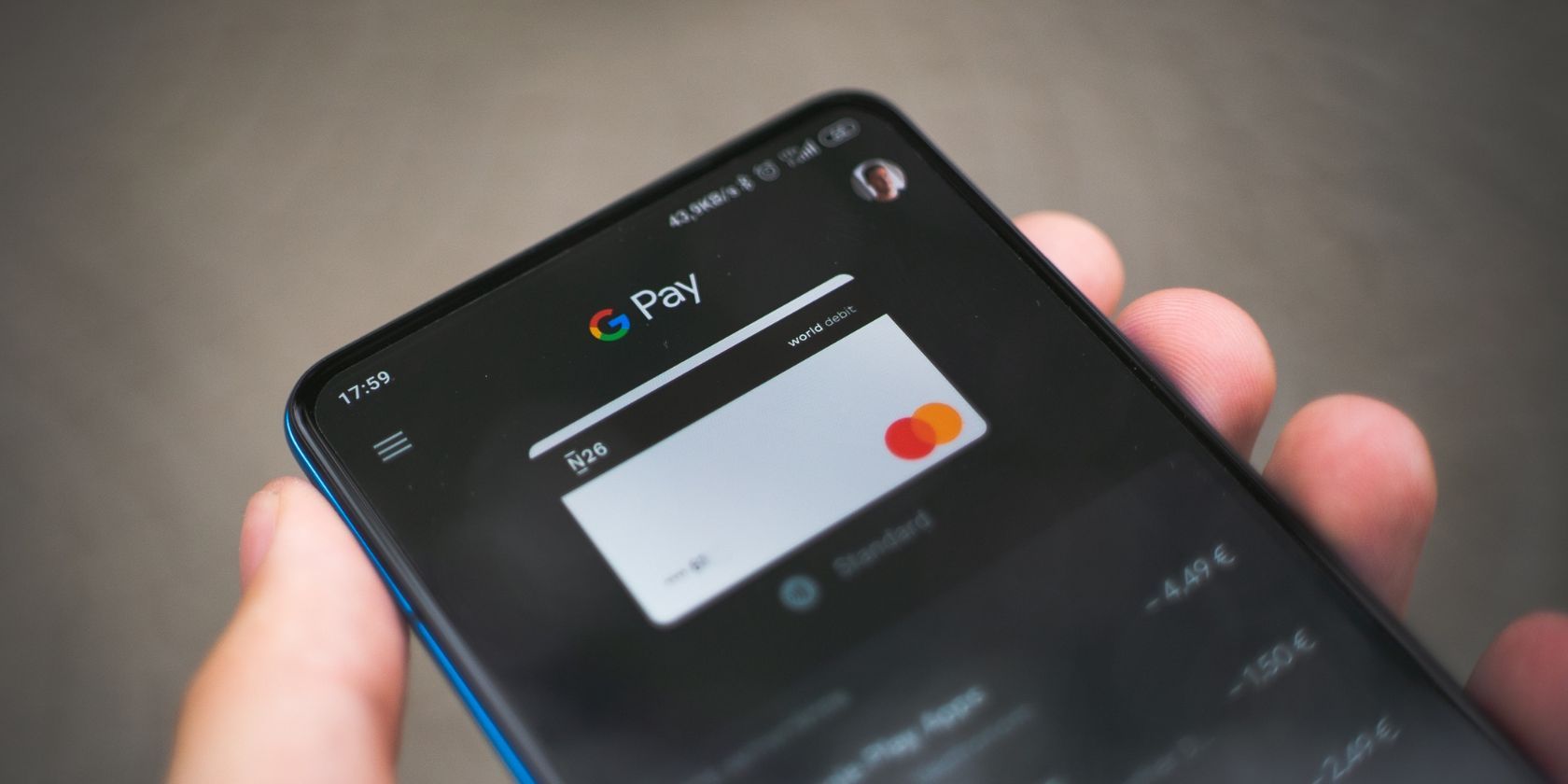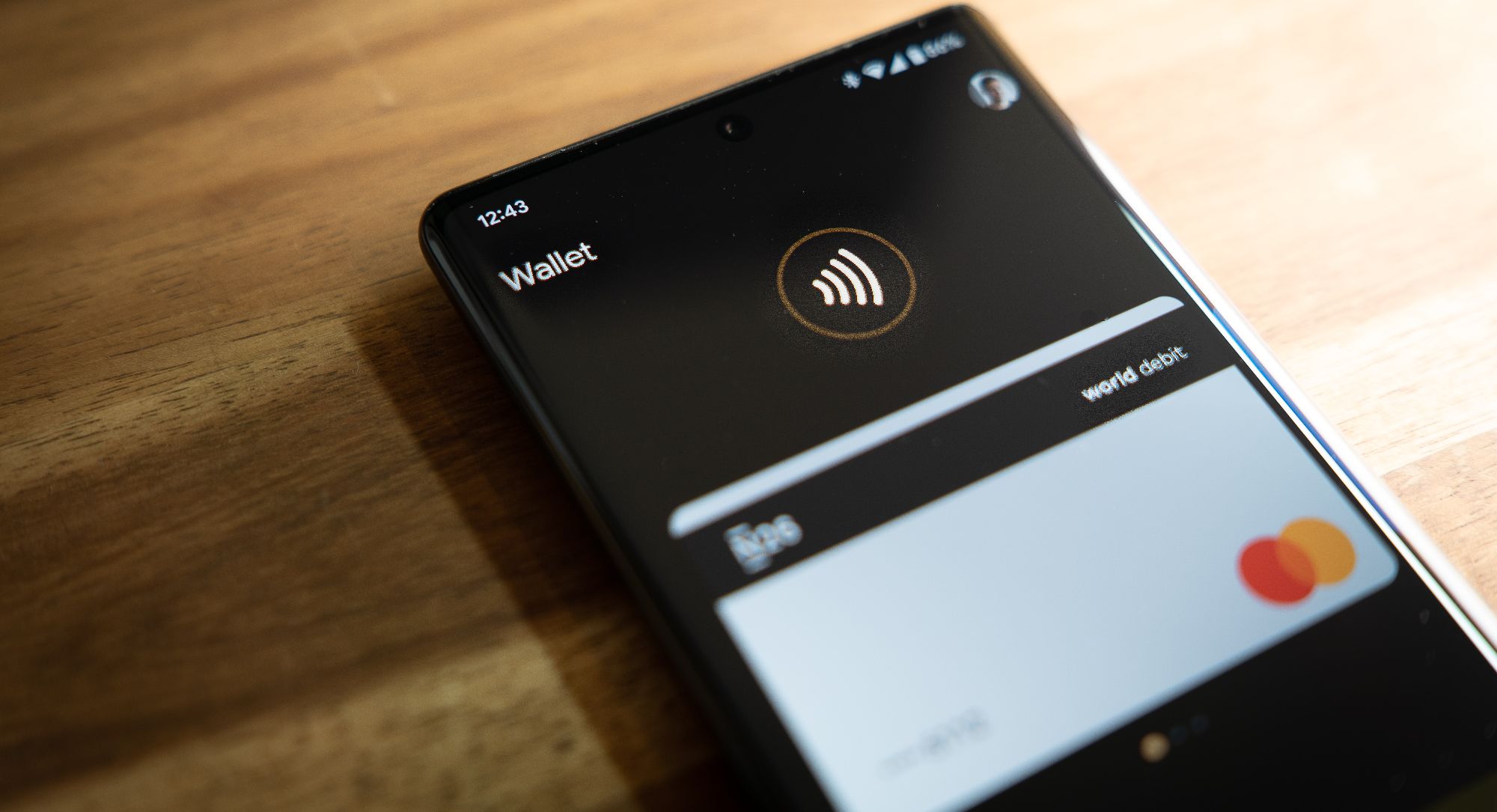Digital wallets are now preferred by many over physical payment cards and cash, as they allow you to pay for goods and services using your smartphone or smartwatch. But are digital wallets really safe to use? Can you trust these apps with your money?
What Is a Digital Wallet?
A digital wallet is an entirely virtual wallet, in which you can store digital payment cards, tickets, transport passes, and more. These wallets come in the form of apps, such as Google Wallet and Samsung Wallet, and are usually free to install.
The main lure of digital wallets is the ability to make contactless payments from your phone or smartwatch on-the-go. While physical payment cards can also be used in a contactless fashion, they're very easy to use, and often require a wallet or purse for storage. Some find this to be a burden, especially if they like to travel light.
What's more, if your physical contactless card gets stolen, the thief may be able to make multiple contactless payments on your card before you're able to lock it via your bank. This is an evident security risk and has caused a lot of financial damage in the past.
Enter digital wallets. These can be protected by your smartphone or smartwatch's security features (which we'll discuss more later), can be used both online and in person, and can also store other assets on top of payment cards.
Digital wallets use NFC (Near-Field Communication) to facilitate contactless payments. NFC has been around for some time, having stemmed from RFID (Radio Frequency Identification). Today, NFC is mostly known for its use in contactless payments. If you use any kind of digital wallet to pay without contact at a terminal, then you're using NFC.
All you really need to know here is that it allows the phone and the payment terminal to interact, facilitating transactions.
It's clear that digital wallets offer users convenience, but can you really trust them?
Are Digital Wallets Safe?
When it comes to handling your money, you want to make sure that any app you're using for this purpose can be trusted. So, what are the security pros and cons associated with these apps?
The Pros of Digital Wallets
Reputable digital wallet providers know that they are handling sensitive customer information through their apps, and have taken the necessary steps to ensure that this information is being kept safe. But how is this done?
Let's start with encryption.
A lot of digital wallet apps use encryption protocols to safeguard payment information. Encryption is a method used to convert plain text to random code, therefore hiding the real data being stored.
Digital wallet providers like Samsung Wallet encrypt data that is being transferred from one place to another. For instance, when you add a card to your Samsung Wallet, the payment information is encrypted before it is sent to Samsung's servers.
Digital wallet apps also often tokenize payments to keep your money safe. For example, when conducting a transaction via Google Wallet, the app will create a unique token for the value of that payment. Essentially, the tokenization process will replace sensitive data (your payment information) with non-sensitive data (the token information, also known as surrogate data) so that nothing highly valuable falls into the wrong hands.
But for all their safety benefits, digital wallets do pose some risks too.
The Risks of Digital Wallets
One of the most notable vulnerabilities that digital wallets have is their use of NFC. Because NFC conducts payments wirelessly, there's always a chance of an attacker stealing your funds via NFC. This can be done in a number of ways, one of which involves coming within a close range of the victim's device and eavesdropping on the data being used and transferred.
While attackers need to be very close to the victim's device to do this, it is nonetheless possible, and is therefore something to consider.
What's more, your digital wallet app may be a lot more exposed to unauthorized access than you'd think. If you aren't using adequate security measures to safeguard your wallet app, having your device stolen may expose you to theft.
Because digital wallets rely solely on technology to work, malfunctions are also a potential issue. While technical malfunctions may simply prevent you from using your wallet, or just slow things down, they may also result in security breaches, which can put your stored payment information at risk.
Out of all the digital wallets out there, those that hold cryptocurrency are most often targeted by cybercriminals. This is typically due to the large holdings that are often kept on crypto wallets. But this doesn't mean that digital wallets holding traditional funds are not being exploited.
Should You Use Digital Wallets?
There's no real reason why you shouldn't use a digital wallet. While there are some security risks associated with these apps, there are security risks that come with pretty much any app or website. Cybercrime is now so common that, unfortunately, no one is ever 100 percent protected from scams and attacks when online, even when using antivirus software and other security features.
If you're extremely committed to security and are worried about cyberattacks, it may be better to stick to physical cards, but note that these can also be stolen and exploited.
If you are using a digital wallet, it's important that you ensure it is not being exposed to cyberattacks unnecessarily. Ensure that your smartphone or smartwatch is protected biometrically or with a password, and even consider locking your wallet app in the same way to provide another layer of security.
When using a digital wallet app, it's additionally important to update it regularly so that any possible security vulnerabilities are ironed out. You should also consider avoiding unsecured Wi-Fi networks when making payments using your digital wallet, as these are often used by cybercriminals to infiltrate devices and hack accounts.
If you want to use a digital wallet but are very worried about the security risks, consider first using a card that doesn't have a lot of money deposited on it. This will put you at ease while also letting you try out a digital wallet to see if it works for you.
Digital Wallets Are Useful but Aren't Airtight
If you value convenience, using a digital wallet can certainly work for you. This can streamline your payments and keep things simple, but it's important to acknowledge that these apps are not completely impervious to malfunctions and attacks.



